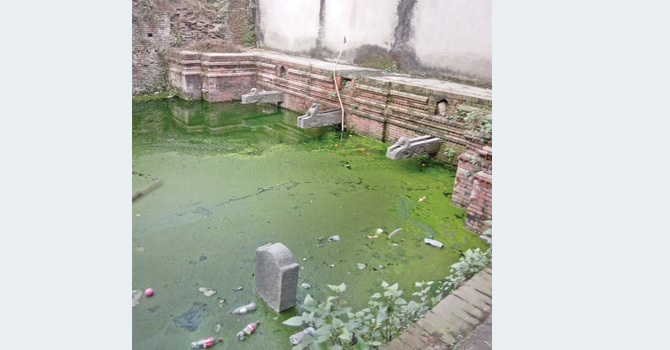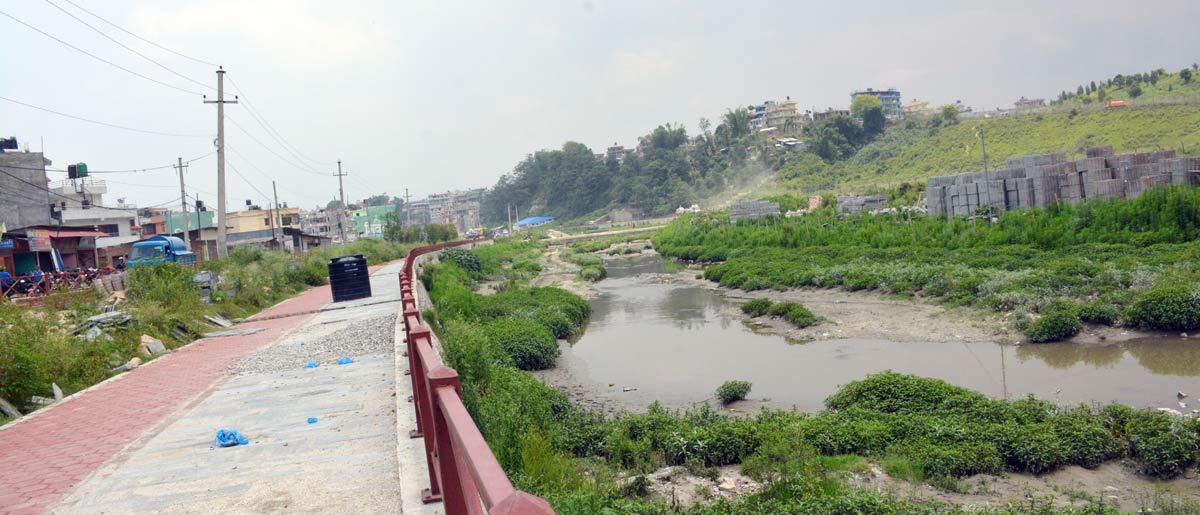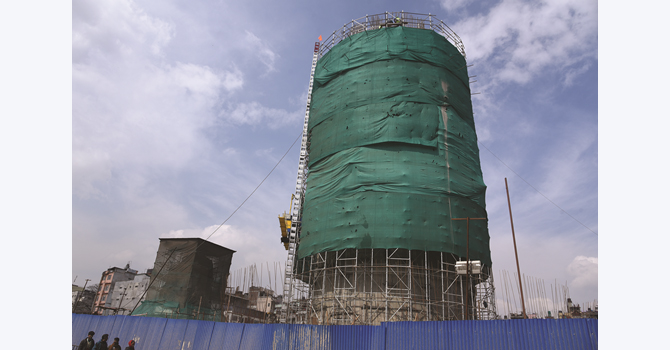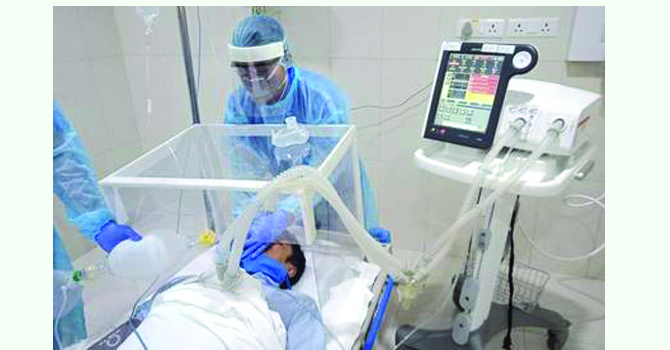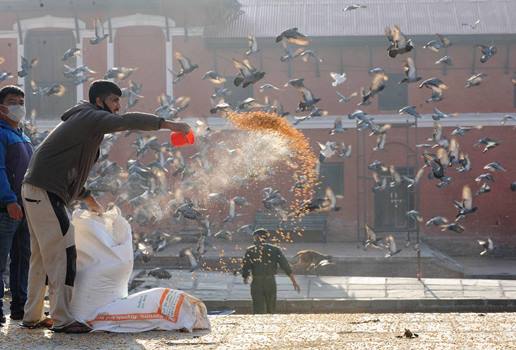Cancer-causing baby powders continue circulating in the Nepali market

By Binu Shrestha
Kathmandu, Jan. 24: Baby powders, one of the most widely used cosmetics, are alleged to contain cancer-causing asbestos.
Several investigations and scientific researches provide evidence after evidence that exposure to asbestos-tainted talcum powder may cause malignant mesothelioma, a rare and deadly cancer that affects tissues lining internal organs.
Following this, the talc-based baby powder manufactured by Johnson and Johnson (J&J), an America-based multinational pharmaceutical company, has been banned in the US, Canada and recently in Congo, and has been withdrawn from the market.
The company has now shifted to corn or rice or other alternatives like starch-based baby powder in the US and Canada. However, it has been recklessly producing, exporting and selling the same lethal talcum powder in several other countries.
This sort of double standard practice from such so-called multinational companies should not be acceptable at the cost of public health, said Ram Charitra Sah, Executive Director of Center for Public Health and Environmental Development (CEPHED). However, Nepal government has banned the import, sale, distribution and use of all forms of asbestos and asbestos containing products since June 20, 2015.
Despite the ban on all forms of asbestos containing products, the baby powder continues penetrating the local markets. “The Ministry of Forest and Environment and Department of Customs appear to be serious about the issue but haven't been vigilant enough to stop such products from being imported to the country,” stressed Sah.
He further informed that on May 19, 2020, J&J announced its decision to discontinue sale of its talc baby powder in the US and Canada after thousands of women who used the product developed ovarian cancer and filed lawsuits against the company.
Moreover, on November 13, 2020, the Ministry of Commerce, Congo had decided to suspend the importation and marketing of the powder in the county.
“Surprisingly, J&J and other companies intend to continue sales of talc baby powder in many South Asian countries including in Nepal, which cannot be acceptable at the expense of our public health,” he added.
The regular use of baby powder containing asbestos by women of colour so as to make themselves white, among other uses, has been found to cause ovary cancer in addition to cancer in their private parts, said Dr. Aruna Upreti, senior public health expert.
History shows us that many women have developed ovarian cancer using the baby powder. Illustrating the cause of untimely death of Michel Jackson, she said it was because of the heavy burden of chemical drugs.
Pediatricians should not recommend using talc powder on private parts as well as on the other areas of the body. “Massive awareness by all, especially concerned government agencies in addition to the researchers and public health advocates, and most importantly the medical personnel should play crucial role in stopping people from applying baby powder on their children,” said Dr. Uprety.
Indu Bikram Joshi, Deputy Director General of Department of Environment, said that integrated laws and regulation was concerned with the other heavy metals issues such as lead, mercury, asbestos, etc.
The Department of Customs doesn’t have authority to ban the baby power; it is under the jurisdictions of the Department of Drug Administration, Department of Environment and Department of Commerce, Supply and Consumer Product, said Sishir Ghimire, Chief of evaluation section of the department.
Baby power has not yet been registered with the Department of Drug Administration (DDA) as of now and so was out of regulation. It might be regulated in the future. DDA will regulate baby products once it’s authorised to do so, said Dr. Akritee Pokhrel, section officer at DDA.
Sagar Mishra, chief of market monitoring division of Department of Commerce, Supply and Consumer Protection, informed that the department had already collected the J&J-made baby powder made in USA, Canada and India, along with Himalayan baby powder and sent them to test the presence of asbestos to the custom department-owned lab.
Based on the finding of the test, the department would ban the baby powder if found contaminated with asbestos. It will take around a month for the results to come out of the lab. The testing results will be made available to the public, incorporating into the public awareness package, he added.
Executive director of CEPHED Sah further said that the department had also sent six samples of the J&J-made powder and Himalayan powder for lab tests in the USA. It will also take a month for the results to arrive.
Recent News

Do not make expressions casting dout on election: EC
14 Apr, 2022
CM Bhatta says may New Year 2079 BS inspire positive thinking
14 Apr, 2022
Three new cases, 44 recoveries in 24 hours
14 Apr, 2022
689 climbers of 84 teams so far acquire permits for climbing various peaks this spring season
14 Apr, 2022
How the rising cost of living crisis is impacting Nepal
14 Apr, 2022
US military confirms an interstellar meteor collided with Earth
14 Apr, 2022
Valneva Covid vaccine approved for use in UK
14 Apr, 2022
Chair Prachanda highlights need of unity among Maoist, Communist forces
14 Apr, 2022
Ranbir Kapoor and Alia Bhatt: Bollywood toasts star couple on wedding
14 Apr, 2022
President Bhandari confers decorations (Photo Feature)
14 Apr, 2022


